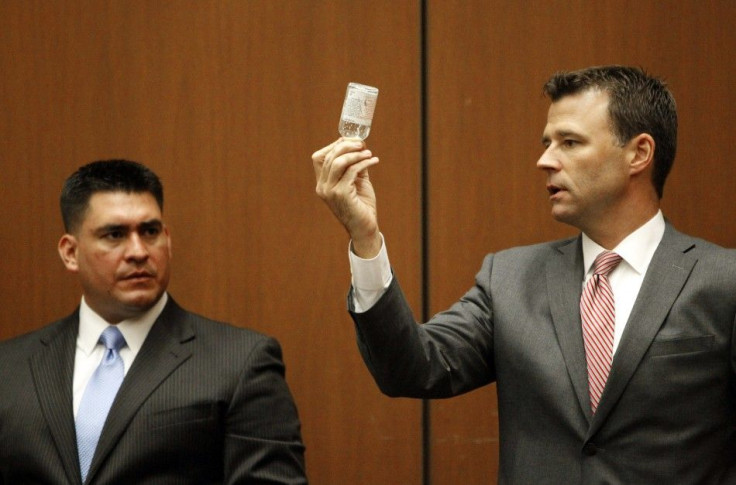Michael Jackson Trial: Doctor Hid Propofol Vials Before Calling 911, Aide Testifies

Michael Jackson's doctor delayed calling 911 so he could hide certain medical supplies first, a witness testified Thursday in the trial of Conrad Murray, who is facing involuntary manslaughter charges in the singer's 2009 death.
Alberto Alvarez, Jackson's director of logistics, told the Los Angeles County Superior Court that when he entered Jackson's bedroom on June 25, 2009, Murray was giving the singer chest compressions with one hand, The New York Times reported.
When I came into the room, he [Murray] said, 'Alberto, hurry, we have to get him to a hospital, we have to get an ambulance,' Alvarez testified. But he said Murray told him to hide some medical supplies in a blue bag before calling 911.
He said, 'Here, put these in a bag,' Alvarez said, according to The Associated Press. I believed that Dr. Murray had the best intentions for Mr. Jackson, so I didn't question his authority at the time. I thought we were packing to get him ready to go to the hospital.
Prosecutors showed Alvarez a vial of propofol and a saline bag that were recovered from Jackson's home after his death, and Alvarez said they looked like the items Murray had asked him to hide, The New York Times reported.
Murray has admitted that he injected Jackson with propofol, an anesthetic that Jackson took for insomnia, on the night of Jackson's death. The medical examiner concluded that propofol was the cause of death.
But Murray and his lawyers maintain that he administered a safe dosage, and that Jackson died after injecting himself with additional propofol while Murray was using the restroom. Murray's lawyer, Ed Chernoff, told the court that Jackson had also taken sedatives earlier the same day, but Murray didn't know that.
But prosecutors say it was inappropriate for Murray to give Jackson propofol to begin with, because it is a powerful anesthetic that is not normally used except for surgery, and grossly negligent for him not to monitor Jackson's vital signs or ensure that someone was in the room with him at all times.
They have also accused Murray of negligence for not calling 911 immediately when he found Jackson unresponsive, and Alvarez's testimony on Thursday would seem to support that allegation.
On Wednesday, Faheem Muhammad, Jackson's head of security, testified that when he walked into Jackson's bedroom that night, Murray asked, Does anyone know CPR? -- a very odd question, because Murray is a cardiologist.
Murray, 58, could be sentenced to up to four years in prison if convicted.
© Copyright IBTimes 2025. All rights reserved.





















